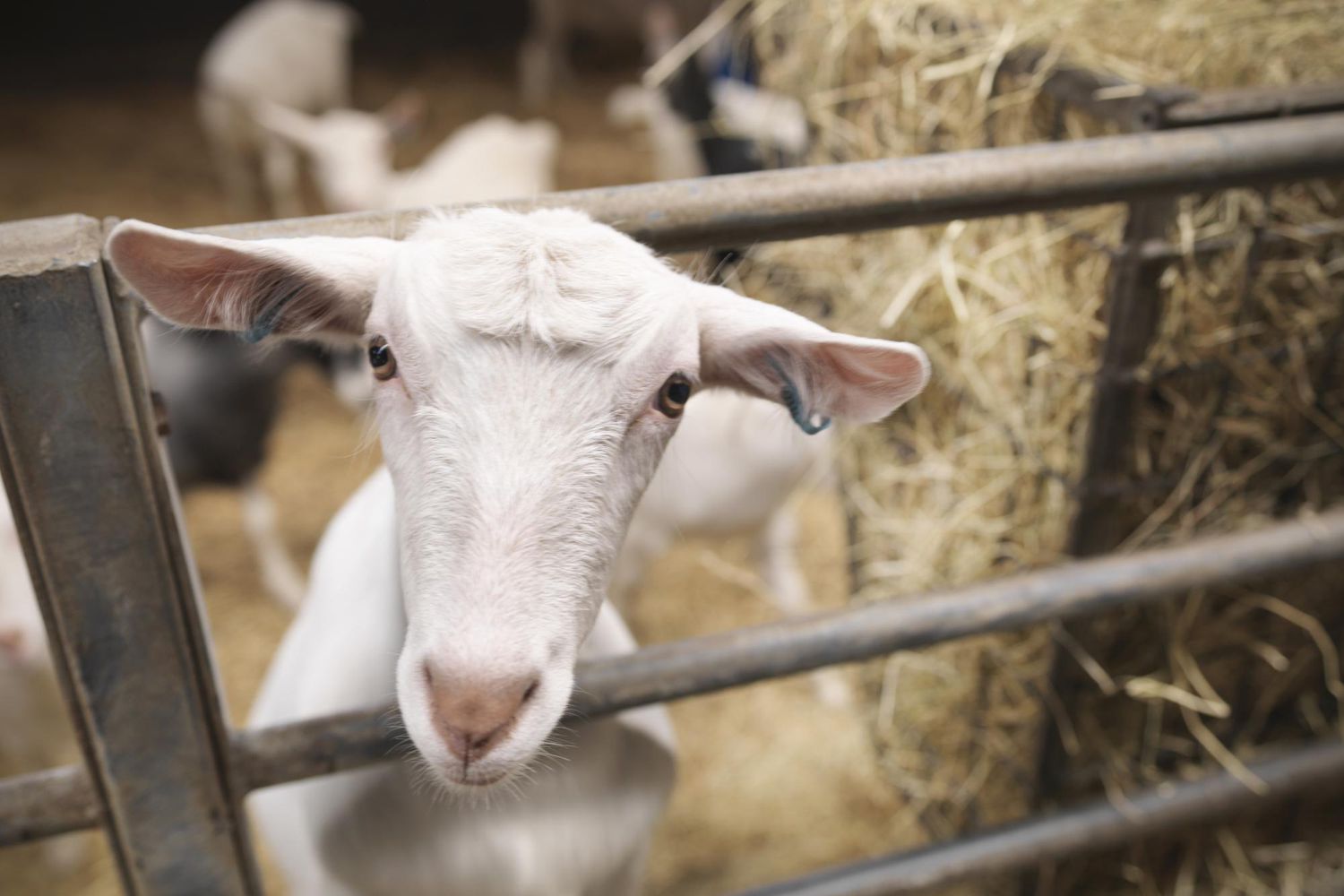If you’re new to raising goats, you might wonder how you will know if one of your goats is sick. While some signs of illness are self-explanatory, here’s a handy checklist for “what a healthy goat looks like” so that when things are off, you can be on top of the situation. Knowing common goat diseases can help match your goat’s symptoms to a possible cause and treatment.
Signs of Stress in New Goats
When you first buy your goats and bring them home, they may be stressed from the transport. Stress is also a sign that something may be off in your goat care: perhaps not enough food (or the wrong kind), insufficient water intake, or maybe one goat is being bullied by its more aggressive herd mates.
Whatever the root cause of the stress, the signs of illness below can also be the symptoms and signs of stress in goats.
At their worst in a newly transported goat, these can develop into shipping fever. This is characterized by pneumonia, diarrhea, a fever reaching 105 degrees F, nasal discharge, coughing, or rapid breathing. If you suspect shipping fever, contact a vet immediately.
Signs of Illness in Goats
If you see these signs, call your veterinarian for advice on whether a visit is warranted or how to monitor the goat further:
- Weakness or lethargy: Your goat might not walk normally, or won’t be its usual playful self. Its head and ears may droop. Not getting up at all would be the most extreme sign of weakness.
- Limping or staggering
- Not eating or drinking as usual, or showing little interest in food or water
- Sore mouth, blisters in the mouth and nose: This is a sign of orf, a contagious viral infection that can be passed to humans.
- Pressing head against wall or fence
- Ears held strangely
- Not urinating, or difficulty urinating: This can be due to dehydration, urinary tract infection, or a urinary tract stone.
- Feces aren’t normal: Goats usually have pelleted feces. If your goat’s feces is runny or loose, this indicates diarrhea.
- Pale or gray eyelids and/or gums: Healthy goats have nice pink eyelids and gums.
- Hot udder: This can indicate an abscess or infection of the udder.
- Swollen midsection:
- Runny nose and/or eyes
- Coughing, funny breathing
- Unusual crying: A healthy goat will not make much noise other than an occasional bleat, although Nubians are known for moaning noises. When you are used to the noises your goat makes, anything out of the ordinary should be noted.
- Isolation: Goats are herd animals and will normally want to be with the herd. If your goat isolates itself from the rest of the herd, something may be wrong.
The most serious signs that indicate an emergency are:
- Swollen or bloated midsection, often accompanied by moaning
- Lying down for several hours without moving
- Isolation from the herd for a long period of time
Disease-Free Certifications for Goats
When you purchase new goats for your herd, ensure they are tested and certified free of caprine arthritis encephalitis (CAE) and caseous lymphadenitis (CL).
CAE is similar to the human AIDS virus and compromises goats’ immune systems. It is contagious, incurable, and can devastate herds. CL is a chronic contagious disease that produces abscesses around the goat’s lymph nodes. The pus from these abscesses can infect other goats.
Why This Matters to Treehugger
At Treehugger, we are advocates of animal welfare, including our pets and other domestic animals. The better we understand our fellow creatures, the better we can support and protect their wellbeing.
